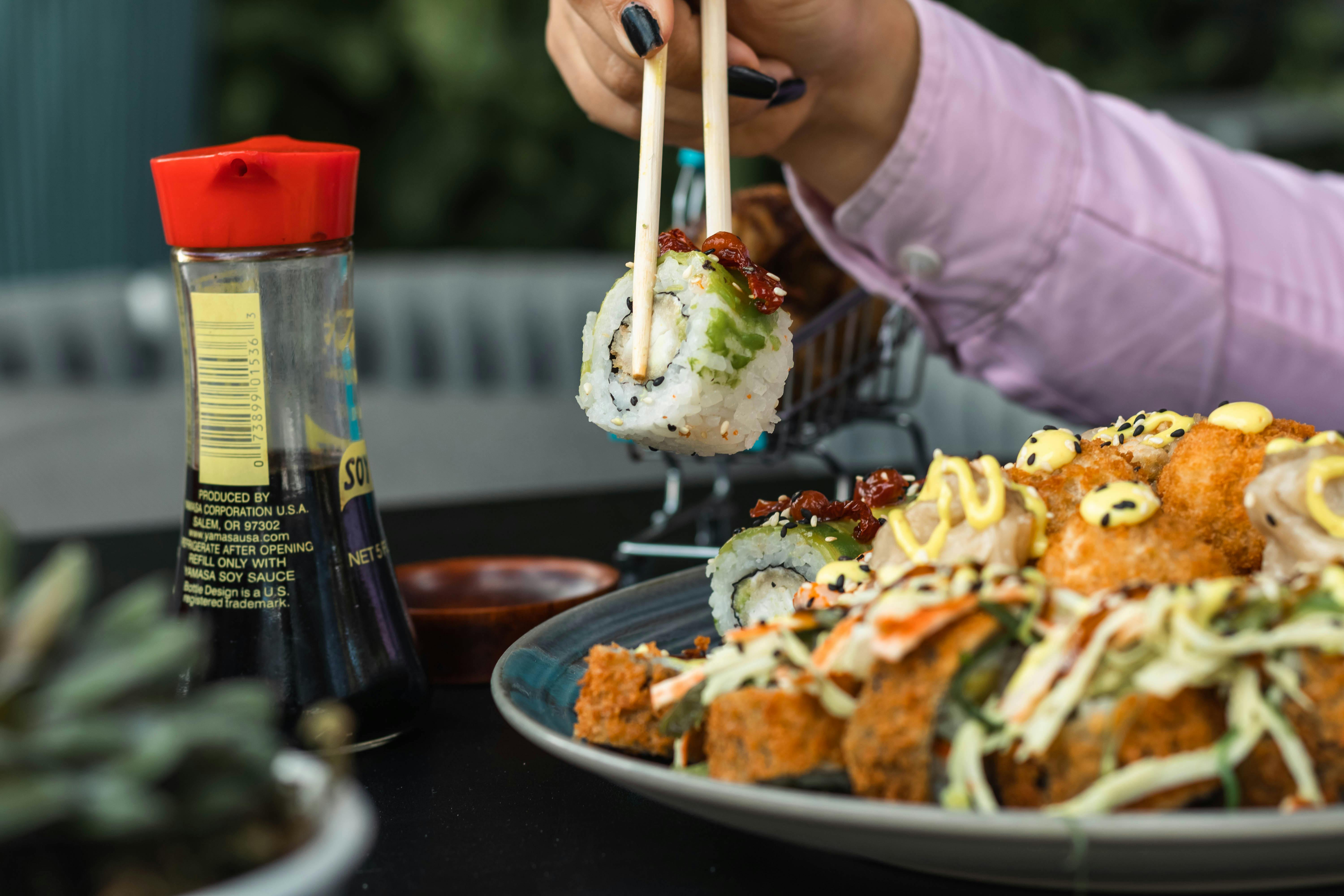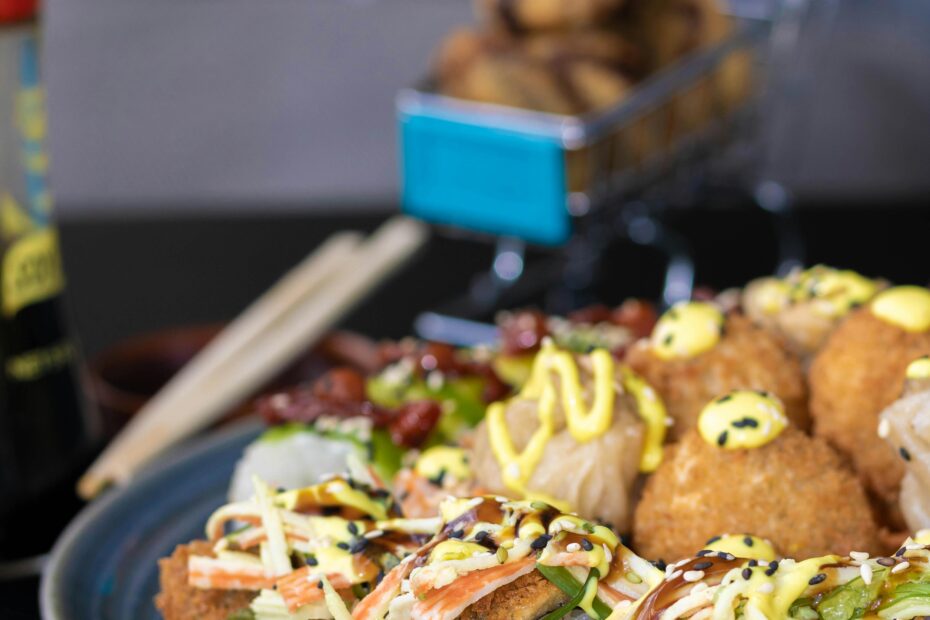Thinking of opening a restaurant? Exciting times ahead! But before you start mapping out your delicious menu and envisioning a bustling crowd of satisfied customers, it’s important to understand the essential permits and licenses that will make your dream a reality. From health permits to liquor licenses, this article will provide you with all the necessary information to navigate the sometimes daunting world of restaurant regulations. So, grab a cup of coffee (or maybe a glass of wine, if you’ve got that license!) and let’s dive into the world of permits and licenses for opening a restaurant.

Business Licenses
To legally operate a restaurant, you will need to obtain several business licenses. These licenses ensure that your establishment complies with health regulations and other legal requirements. Here are some essential business licenses you should consider:
Food Service Establishment Permit
The Food Service Establishment Permit is a crucial license that any restaurant owner must possess. This permit demonstrates that your establishment meets the necessary sanitary and safety standards set by the local health department. It includes guidelines for food preparation, cleanliness, and proper storage of ingredients. Obtaining this permit is essential to protect the health and well-being of your customers.
Alcohol License
If you plan to serve alcoholic beverages at your restaurant, you will need to obtain an Alcohol License. This license is issued by the appropriate governing authority and ensures that your establishment adheres to the legal regulations related to alcohol service. The requirements and application process may vary depending on your location, so it is important to check with your local liquor control board for specific guidelines.
Business License
A Business License is a general requirement for operating any business, including a restaurant. This license allows you to legally conduct business within your jurisdiction and ensures that you comply with local laws and regulations. It is essential to obtain a Business License before opening your restaurant to avoid any legal complications or penalties.
Health Department Permit
In addition to the Food Service Establishment Permit, you may also need to obtain a Health Department Permit. This permit is usually required to demonstrate that your establishment meets health and safety standards beyond food preparation, such as proper waste disposal and cleanliness of the dining area. It is important to consult with your local health department to determine if this permit is necessary for your restaurant.
Labor and Employment Licenses
When opening a restaurant, it is vital to comply with labor and employment laws to ensure a fair and safe working environment for your employees. Here are some essential licenses to consider in this category:
Employer Identification Number
An Employer Identification Number (EIN) is a unique identifier assigned by the Internal Revenue Service (IRS) to businesses for tax purposes. If you plan to hire employees for your restaurant, you will need to obtain an EIN. This number is used for reporting employment taxes and is essential for legal compliance.
Worker’s Compensation Insurance
Worker’s Compensation Insurance protects both you as the employer and your employees in the event of work-related injuries or illnesses. It provides financial assistance for medical expenses, lost wages, and other benefits. In most jurisdictions, having Worker’s Compensation Insurance is mandatory for businesses with employees, including restaurants.
Unemployment Insurance
Unemployment Insurance provides temporary financial assistance to employees who lose their jobs. As a restaurant owner, you are required to contribute to the Unemployment Insurance program by paying unemployment taxes. This ensures that your employees receive benefits if they become unemployed through no fault of their own.
Workplace Safety Regulations
To maintain a safe working environment, you must comply with workplace safety regulations. This includes providing adequate training, implementing safety protocols, and having necessary safety equipment in place. It is crucial to familiarize yourself with the specific safety regulations applicable to your restaurant and ensure compliance to protect your employees and customers.
Food Safety Licenses
Ensuring food safety is paramount in the restaurant industry. Obtaining the following licenses and certifications will demonstrate your commitment to maintaining the highest standards of food safety:
Food Handler’s Permit
A Food Handler’s Permit, also known as a Food Safety Certificate, is typically required for all food service professionals. This permit signifies that you have received proper training in food handling, sanitation, and safety practices. It is essential for anyone involved in the preparation, storage, or handling of food in your restaurant.
Food Safety Manager Certification
Having a certified Food Safety Manager in your restaurant is crucial for maintaining proper hygiene and preventing foodborne illnesses. This certification demonstrates that a designated individual has completed a comprehensive food safety training program and is knowledgeable about safe food handling practices. It is highly recommended to have at least one certified Food Safety Manager on your staff.
Hazard Analysis Critical Control Point (HACCP) Plan
Implementing a Hazard Analysis Critical Control Point (HACCP) plan is essential for maintaining food safety in your restaurant. A HACCP plan identifies potential hazards, establishes control measures, monitors critical control points, and ensures corrective actions are taken if necessary. This plan demonstrates your commitment to preventing foodborne illnesses and is often required by health authorities.
Fire Safety Inspection
To ensure the safety of your establishment and its occupants, a fire safety inspection is necessary. This inspection typically covers fire prevention measures, emergency exits, fire extinguishers, and other safety features. Obtaining a fire safety inspection certificate and complying with fire safety regulations is crucial for the well-being of your staff and customers.
Building and Zoning Permits
Before opening your restaurant, you must obtain the necessary building and zoning permits to ensure compliance with local regulations. These permits pertain to the physical aspects of your establishment and include the following:
Certificate of Occupancy
A Certificate of Occupancy is typically required before you can open your restaurant to the public. This document verifies that your establishment meets all building and zoning requirements and is safe for occupancy. It ensures that your restaurant has undergone all necessary inspections and that it complies with local codes and regulations.
Signage Permit
If you plan to display signage on your restaurant’s exterior, you may need to obtain a Signage Permit. This permit ensures that your signs comply with size, placement, and visibility regulations set by your local zoning authority. It is important to check with your local municipality to determine if a permit is required for your specific signage plans.
Ventilation and Hood System Permit
Proper ventilation and a functional hood system are essential components of any restaurant kitchen. Obtaining a Ventilation and Hood System Permit ensures that your kitchen exhaust system complies with safety and environmental regulations. This permit is necessary to ensure that smoke, grease, and other potentially hazardous substances are effectively removed from your kitchen.
Building Permit
A Building Permit is required for any significant construction or renovation projects in your restaurant. This permit ensures that your construction plans adhere to building codes and regulations. Whether you are expanding your dining area, renovating the kitchen, or making any structural modifications, obtaining a Building Permit is essential to ensure compliance and safety.

Liquor Licenses
If you plan to serve alcoholic beverages in your restaurant, you will need to apply for specific liquor licenses. These licenses regulate the sale, service, and consumption of alcohol on your premises. Here are some important licenses to consider:
Liquor License Application
To serve alcohol legally, you must submit a Liquor License Application to your local liquor control board. The application process typically involves detailed documentation, including your business plan, floor layout, alcohol supplier information, and background checks. Each jurisdiction may have different requirements, so it is crucial to research and follow the specific guidelines in your area.
Alcohol Server Training Certification
In many jurisdictions, restaurant staff who serve alcoholic beverages must undergo alcohol server training and obtain a certification. This training equips servers with the knowledge and skills to handle alcohol responsibly and ensure the safety of patrons. Having certified alcohol servers is a key component of responsible alcohol service and compliance with liquor license regulations.
Purchase and Inventory Records
As a licensee, you may be required to maintain detailed purchase and inventory records for the alcohol you serve. These records demonstrate proper procurement, prevent unauthorized sales, and support compliance with tax regulations. Keeping accurate records is essential for license renewal and may be subject to inspection by liquor control authorities.
Liquor Liability Insurance
Obtaining Liquor Liability Insurance is crucial for protecting your restaurant from potential liabilities arising from the service or consumption of alcohol on your premises. This insurance coverage provides financial protection in case of alcohol-related incidents, such as accidents or injuries. It is essential to have a comprehensive insurance policy that addresses your specific liquor license requirements and potential risks.
Music and Entertainment Licenses
If your restaurant offers live music, performances, or entertainment, you may need to obtain various licenses and permits to comply with copyright and entertainment regulations. Here are some licenses to consider:
Music License
To play copyrighted music in your restaurant, you need to obtain a music license from the appropriate performing rights organization (PRO). This license ensures that you have the legal rights to publicly perform copyrighted music. The license fees are typically based on factors such as the seating capacity, type of usage, and whether live music or recorded music is played.
Public Performance License
In addition to a music license, you may need a Public Performance License if you plan to host live performances or display copyrighted audiovisual content, such as movies or television broadcasts. This license grants you the right to publicly perform or display copyrighted works within your establishment. It is important to contact the appropriate PRO or licensing agency to obtain the necessary permits.
Dance License
If your restaurant offers a dance floor or allows dancing, you may need to obtain a specific Dance License. This license ensures that your establishment complies with licensing and safety regulations related to dancing. It is important to check with your local licensing authority or municipality to determine if a dance license is required for your restaurant.
Entertainment Venue License
If your restaurant operates as an entertainment venue, showcasing performances or hosting events regularly, you may need to obtain an Entertainment Venue License. This license covers various forms of entertainment, such as live music, comedy shows, or theatrical performances. The requirements for this license may vary depending on your location and the type of entertainment you offer.

Environmental Permits
Restaurants must also consider environmental permits related to waste management, pollution control, and the use of water and sewerage systems. Here are some essential permits in this category:
Waste Management Permit
Proper waste management is critical for maintaining a clean and environmentally friendly operation. You may need to obtain a Waste Management Permit to ensure that your waste disposal practices align with local regulations. This permit may cover areas such as recycling, solid waste disposal, and hazardous waste handling.
Air Pollution Control Permit
To minimize air pollution emissions from your restaurant, you may need to obtain an Air Pollution Control Permit. This permit ensures that your establishment complies with air quality regulations set by your local environmental agency. It may involve assessing emissions from cooking equipment, ventilation systems, or other sources within your restaurant.
Water and Sewerage Permit
If your restaurant relies on a public water supply or sewerage system, you may need to obtain a Water and Sewerage Permit. This permit ensures that your establishment complies with regulations related to water usage, wastewater disposal, and backflow prevention. It is essential to work with your local water utility or municipal authority to meet the specific requirements in your area.
Grease Trap Permit
Restaurants that generate or handle a significant amount of grease must have a Grease Trap Permit. This permit ensures that your establishment has appropriate grease trap systems in place to prevent grease and fats from entering the sewage system. Grease traps help maintain the integrity of the sewer system and prevent clogs and environmental contamination.
Trademark and Copyright Licenses
If you plan to use licensed images, logos, trademarks, or enter into a franchise agreement, you will need to obtain the necessary licenses and registrations to protect intellectual property rights. Here are some important licenses and agreements to consider:
Trademark Registration
To safeguard your restaurant’s brand identity, it is advisable to register your trademark. Trademark registration grants you exclusive rights to use a specific name, logo, or slogan, and helps protect against unauthorized use or infringement by others. Consult with a trademark attorney or intellectual property expert to guide you through the registration process.
Copyright Registration
If your restaurant creates original artistic works, such as menus, website content, or promotional materials, it is recommended to register your copyrights. Copyright registration provides legal protection for your creative works, granting you exclusive rights and the ability to enforce them in case of infringement. Registering your copyrights will help safeguard your intellectual property and prevent unauthorized use.
Use of Licensed Images or Logos
If you plan to use licensed images or logos in your restaurant’s branding, marketing materials, or menus, it is crucial to obtain the necessary licenses or permissions from the copyright holders. This ensures that you have the legal rights to use the copyrighted material and protects you from potential copyright infringement claims.
Franchise Agreement
If you plan to open a restaurant as part of a franchise, you will need to enter into a franchise agreement with the franchisor. This agreement outlines the terms and conditions for operating the franchise, including the use of the franchisor’s branding, trademarks, and intellectual property. Working with a franchise attorney is highly recommended to review and negotiate the terms of the agreement to protect your interests.
Outdoor Dining Permits
If you wish to offer outdoor dining options at your restaurant, you may need specific permits to utilize public spaces or operate outdoor facilities. Here are some permits to consider:
Sidewalk Cafe Permit
To have seating or dining areas on public sidewalks, you will likely need to obtain a Sidewalk Cafe Permit. This permit ensures that your outdoor dining setup complies with zoning, safety, and accessibility regulations. It may involve paying fees, submitting a detailed plan, and meeting specific criteria set by your local municipality.
Patio Permit
If your restaurant intends to have an outdoor patio or garden area, you may need to obtain a Patio Permit. This permit verifies that your patio adheres to local building and safety codes, provides proper outdoor seating, and maintains compliance with noise and environmental regulations. It is crucial to consult with your local zoning authority to obtain the necessary permits and abide by any restrictions or guidelines.
Use of Public Space Permit
If you plan to utilize public space adjacent to your restaurant, such as a park or plaza, for events, seating, or temporary structures, you may need a Use of Public Space Permit. This permit grants permission to use public property, subject to certain conditions and regulations imposed by your local municipality. It is important to check with your local government or parks department to comply with their specific requirements.
Outdoor Heating or Cooling Permit
If you intend to use outdoor heating or cooling systems, such as patio heaters or misting systems, you may need to obtain an Outdoor Heating or Cooling Permit. This permit ensures that you are in compliance with safety regulations and protects against potential hazards. It is essential to consult with your local fire department or building authority to determine if a permit is required for your specific outdoor heating or cooling setup.
Special Permits
Depending on the unique circumstances and location of your restaurant, you may require additional permits or licenses. Here are some special permits to be aware of:
Outdoor Advertising Permit
If you plan to use outdoor signage or advertising displays outside your restaurant premises, you may need to obtain an Outdoor Advertising Permit. This permit ensures that your advertising complies with local regulations concerning size, placement, and content. Be sure to check with your local zoning or advertising authorities to determine if this permit is necessary for your specific signage plans.
Valet Parking Permit
Offering valet parking services at your restaurant may require you to obtain a Valet Parking Permit. This permit allows you to operate a valet parking service legally and ensures compliance with local regulations regarding traffic flow, safety, and liability. It is crucial to work closely with your local transportation authority or parking enforcement agency to understand the requirements and obtain the necessary permits.
Filming or Photography Permit
If your restaurant is frequently used as a filming location or if you plan to host professional photography sessions, you may need to obtain a Filming or Photography Permit. This permit grants permission to use your establishment as a backdrop for commercial purposes and ensures compliance with regulations related to permits, liability, and property use. It is important to coordinate with local film commissions or permitting offices to understand the requirements and obtain the necessary permits.
Live Music Permit
If you wish to host live music performances, such as bands or solo artists, at your restaurant, you may need to obtain a Live Music Permit. This permit ensures that your establishment meets the necessary legal requirements for hosting live music, including adherence to noise regulations and music licensing. It is essential to consult with your local municipality or entertainment licensing authority to determine if this permit is required for your restaurant.
In conclusion, opening a restaurant requires obtaining various permits and licenses to ensure compliance with legal regulations and ensure the safety of your customers and employees. From business licenses and labor permits to food safety and environmental permits, each category plays a vital role in the smooth operation of your restaurant. It is essential to conduct thorough research on the specific requirements in your area and consult with the appropriate authorities to obtain the necessary permits and licenses. By fulfilling these requirements, you can establish a solid foundation for your restaurant and provide a safe and enjoyable experience for all.
